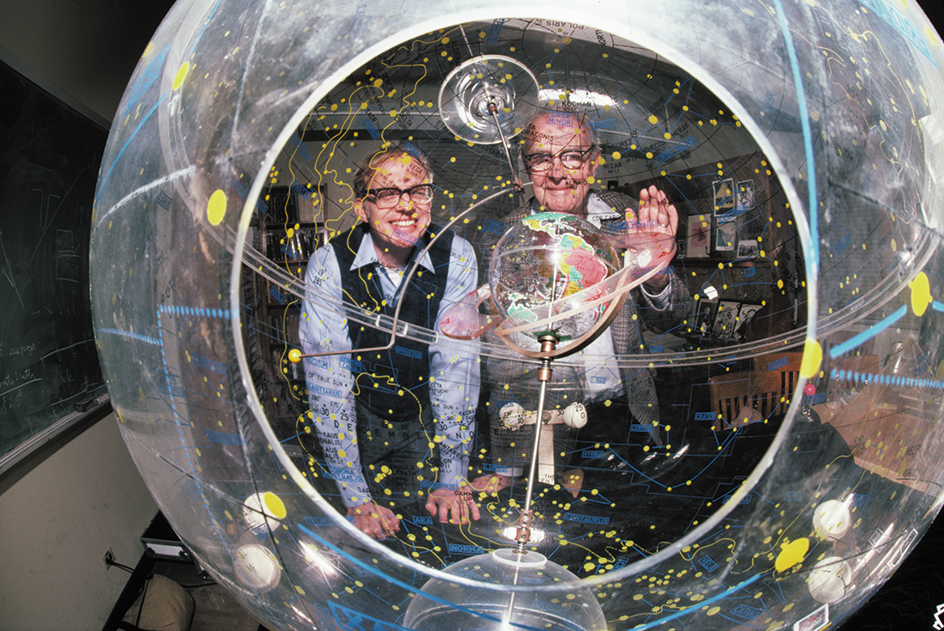Alvarez, << AL vuh rehz, >> Luis Walter (1911-1988), an American physicist, won the Nobel Prize in physics in 1968 for his contributions to the study of subatomic particles (particles that make up atoms). Alvarez discovered types of particles that exist for only a tiny fraction of a second.

During the 1950’s, Alvarez and his associates at the University of California built machines called bubble chambers to detect atomic nuclei and smaller subatomic particles. They also designed computer programs to analyze the results found with such machines. Using these techniques, Alvarez discovered two types of short-lived subatomic particles in 1960. He and other scientists have identified many additional types since.
Alvarez’s most recognized contribution to science may not be his achievements in physics. In the late 1970’s, while assisting his son, the geologist Walter Alvarez, the two men uncovered evidence of a large asteroid impact occurring around 65 million years ago. While controversial when first proposed, this asteroid is now widely accepted as the main cause for the disappearance of the dinosaurs.
Alvarez was born on June 13, 1911, in San Francisco and earned a Ph.D. in physics from the University of Chicago in 1936. He joined the faculty of the University of California at Berkeley in 1938. Alvarez died on Sept. 1, 1988.
